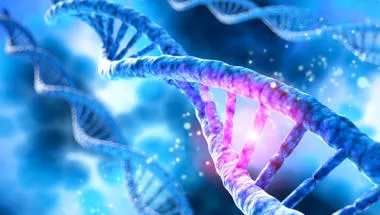
Biography
Tilda began her academic career at the University of Leeds where she graduated with an MBiol in Biochemistry. During this time, she completed an extended research project within the wet and dry lab. This investigated if mutations within a protein interaction domain could contribute to resistance to cancer therapies that inhibit RTK’s. Following her degree Tilda worked at the Anthony Nolan Research Institute (ANRI) as a Research Assistant. Here she completed long-read SMRT sequencing of HLA genes on cohorts of patient and donor pairs that had previously undergone haematopoietic stem cell transplantation. During her time at ANRI Tilda presented the results of her groups findings at the European Federation for Immunogenetic conference. Tilda then secured a role at Oxford Nanopore Technologies (ONT) as a Development Scientist where she was placed on a secondment at KCL to support the NIHR 22k project.
Research interests
- Long-read sequencing
- HLA and transplantation
- Rare diseases
- Tumour biology
Key publications
European Federation for Immunogenetics (EFI) 2022 Poster Abstract. Discovering novel polymorphism in full-length HLA-F, -G and -DRA genes with SMRT DNA sequencing. Thomas R Turner, Jonathan AM Lucas, Matilda C Tierney, Hannah L Macpherson, James Robinson, Neema P Mayor, Steven GE Marsh
European Federation for Immunogenetics (EFI) 2023 Oral Presentation. Full-gene sequence characterisation of HLA-DMA, -DMB, -DOA, and -DOB in a panel of International HLA and Immunogenetics Workshop cell lines. Matilda C Tierney, Thomas R Turner, Gabriel J Benitez, Dominic Barker, Neema P Mayor, Steven GE Marsh
Research

King's Genomics
King’s Genomics provides biobanking support for both internal and external collaborators, storing a wide range of human biological samples.
Research

King's Genomics
King’s Genomics provides biobanking support for both internal and external collaborators, storing a wide range of human biological samples.
